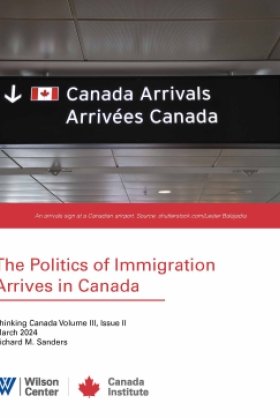Book Discussion -- <i>Blacked Out: Government Secrecy in the Information Age </i>
Overview
Government transparency, according to Alasdair Roberts, is generally considered an essential ingredient for effective democratic government. The 1966 Freedom of Information Act (FOIA) was designed to advance a culture of transparency in the United States, and to some extent it has done so. In addition to legislation, government openness has been enhanced by technological and cultural developments, among them the significant increase in the number of government oversight groups, the acceleration of the news cycle, public awareness of the importance of transparency, and the sanctioning of "whistle-blowers." Despite the era of growing transparency, however, counter efforts have led to a tighter web of government secrecy. Speaking at the Division of United States Studies' discussion of his Blacked Out: Government Secrecy in the Information Age, Prof. Roberts outlined some of the phenomena that thwart government transparency.
The three structural changes Roberts sees as increasing the secrecy of government processes include the privatizing of government functions, which circumvents public disclosure requirements because the private sector is not subject to government disclosure rules. The growth of supranational policymaking entities such as the World Trade Organization, International Monetary Fund and the European Union, again not subject to U.S. FOIA requirements or those of other member nations, are a second factor. The third structural change lies in the emerging phenomenon of networking global security agencies. The agencies impose secrecy requirements upon network members, diminishing the capacity of those privy to the information to hold the work of the agencies accountable.
The year 2006 is the 40th anniversary of FOIA. Since it was adopted, 65 other nations have followed the U.S. model and have adopted FOIA-type legislation of their own. Ironically, Roberts commented, the norm of transparency has been diffused throughout the world, but the structural changes he listed have resulted in extreme difficulty in enforcing it.
David McMillen, who served on the professional staffs of the House Committee on Government Reform and the Senate Governmental Affairs Committee from 1991 to 2005, discussed freedom of information in the United States. After 15 years with Congress, McMillen concluded sadly that "Congress is more committed to the rhetoric of open government than it is to the practice or implementation of it." He noted, for example, that Congress has enabled circumvention of the disclosure requirements of the Federal Advisory Committee Act. When questioned, federal agencies even balk at releasing data about the number of contractors they employ. A complicating factor is that bureaucracies seek to keep information from each other as well as from the public and that, of course, has the effect of limiting the ability of any outsider to access information. Congress has declined to apply FOIA to itself, and whereas Presidential records are available twelve years after the office has been vacated, Congressional records are closed to public view for thirty to fifty years. Those records may not be archived at all, McMillen commented, lambasting what he called the abysmal congressional record management system. He added that the question for the immediate future is that of preservation and access to electronic records, which is something he will be working on in his new position at the National Archives.
Thomas Blanton took the discussion into the international realm by describing his experiences with international efforts to develop open government, lamenting the fact that the U.S. is taking steps back from what had been its leading role in this area. FOIA-type legislation is the smallest part of necessary legislation for successful government transparency, Blanton said; laws that require open committee meetings, the preservation of records, and the release of drafted bills are equally necessary. For countries with fewer resources than the United States, the challenge of government transparency is much greater, and comparatively well-funded government oversight groups in wealthier countries have more success in accessing government documents of poorer countries than do the citizens of those nations. Even so, a wealthy country such as the U.S. has difficulty ensuring open government today, but not because its laws regarding government openness have been undone. In fact, Blanton asserted, there is "no need to revoke [information laws] when you can undo them with a sleight of legal hand," such as issuing an executive order to delay the release of former presidential records, despite the mandate of the Presidential Records Act. To combat the effects of privatization discussed by Roberts, Blanton advocated the expansion of FOIA's sphere to include government contractors – something that has been done in South Africa. Blanton remains convinced that accessible government is rapidly becoming the norm across the world, but open government advocates must be prepared to employ a variety of tactics if they are successfully to develop and maintain government accessibility.
Co-sponsored by the History and Public Policy Program.
Drafted by Acacia Reed
Philippa Strum, Director, Division of U.S. Studies 202-691-4129
Hosted By

Cold War International History Project
The Cold War International History Project supports the full and prompt release of historical materials by governments on all sides of the Cold War. Through an award winning Digital Archive, the Project allows scholars, journalists, students, and the interested public to reassess the Cold War and its many contemporary legacies. It is part of the Wilson Center's History and Public Policy Program. Read more

History and Public Policy Program
The History and Public Policy Program makes public the primary source record of 20th and 21st century international history from repositories around the world, facilitates scholarship based on those records, and uses these materials to provide context for classroom, public, and policy debates on global affairs. Read more
Thank you for your interest in this event. Please send any feedback or questions to our Events staff.










